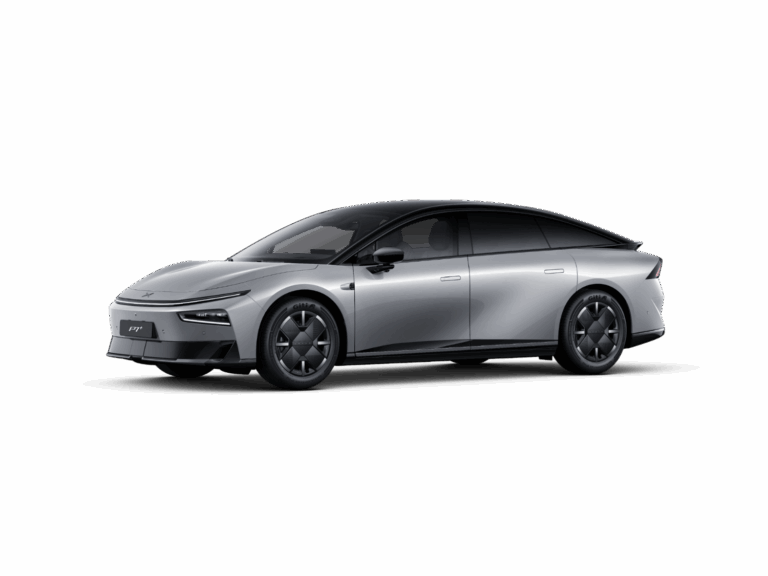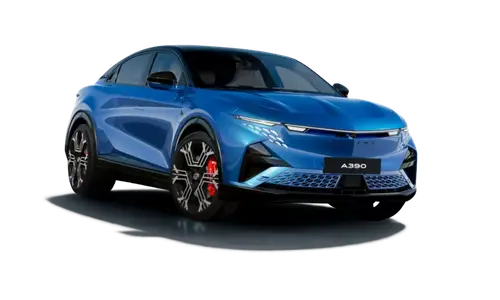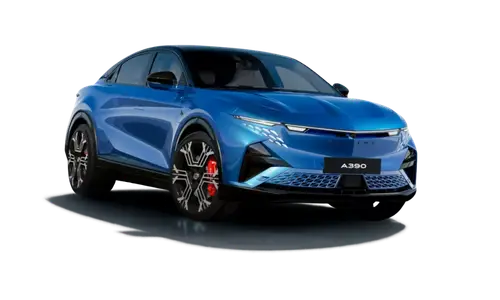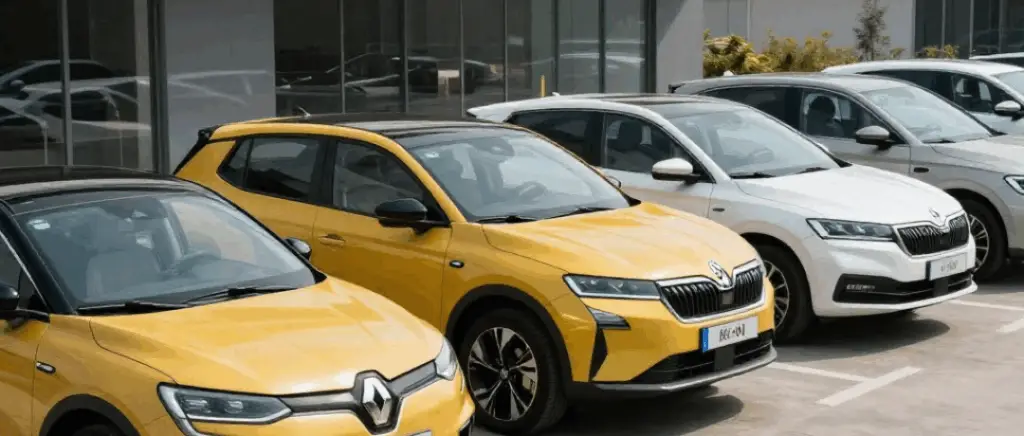What is an eco-certified electric company vehicle, and how is it defined for tax purposes?
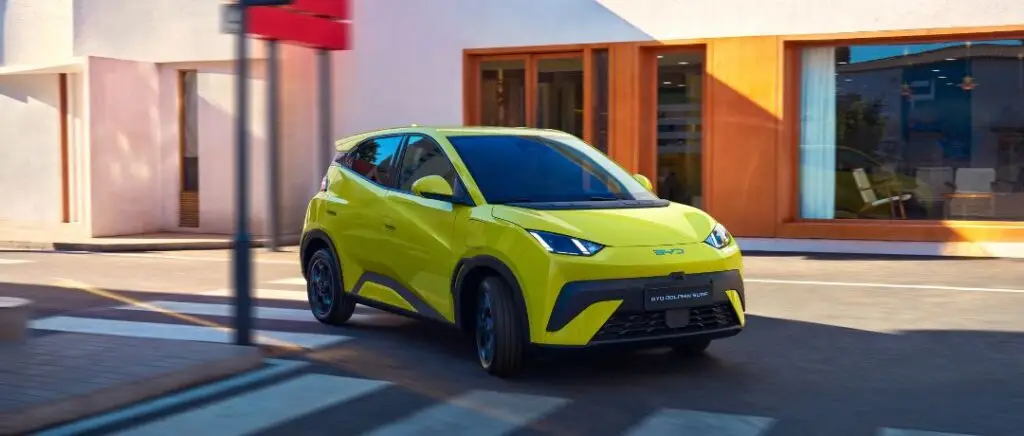
But what exactly is an eco-friendly vehicle?
First of all, let's review a few basics.
A company car is a car that a company makes available to an employee, for both business and personal travel.
An electric vehicleis powered exclusively by electricity. No internal combustion engine, no petrol, just an electric motor. battery rechargeable (from a charging station or wallbox) - or, in some rare cases, a hydrogen fuel cell.
So what distinguishes an eco-certified electric vehicle from a conventional electric model?
The answer lies with ADEME (the French Environment and Energy Management Agency), which introduced a strict "eco-score" standard in 2020.
Unlike a simple measurement of CO₂ exhaust emissions (which is zero for any electric vehicle), the eco-score goes much further. It assesses the vehicle over its entire life cycle:
- The production The impact of the manufacture of materials, the battery, assembly and transport.
- How to use it energy consumption and indirect emissions. For example, a vehicle recharged in France scores better than in Germany, where coal is a bigger part of the energy mix.
- Weight and conditions of use A compact hatchback weighing 1.5 tonnes is rated higher than an electric SUV weighing 2.4 tonnes.
- End-of-life recycling The more recyclable the components, the better the eco-score.
In plain EnglishHowever, not all electric vehicles are automatically eco-scored.
How is this score calculated?
The eco-score is expressed in kilograms of CO₂ equivalent (kg-eq CO₂), a unit that measures the amount of CO₂ emitted by a product.carbon footprint vehicle :
- A model with more than 21,000 kg-eq CO₂ gets the worst score (0).
- Below 12,000 kg-eq CO₂, it achieves the highest score (80).
- Between the two, the score is calculated proportionally.
It is therefore an objective way of rewarding the most virtuous vehicles and discouraging those that are too heavy on the environment, even if they are electric.
Conditions for qualifying for tax relief
An electric vehicle must meet a number of criteria to obtain eco-certified status and therefore qualify for the increased tax allowance of 70 % :
- To appear on the official ADEME list eco-certified vehicles,
- Show a purchase price less than or equal to 47,000 INCL. VAT,
- Present a mass in working order equal to or less than 2,400 kg.
In practical terms, this means that compact saloons, large electric city cars and light commercial vehicles, rather than large premium SUVs, which are often too heavy to be considered green.
Why do electric company cars benefit from an increased tax allowance of 70% until 2027?

The government has extended the scheme until December 2027 to allow companies to apply a tax allowance of 70 % son the valuation of the benefit in kind of eco-scored electric vehicles.
There are three main reasons for opting for an exceptional allowance:
- Accelerating the electrification of company fleets
Businesses account for a massive share of the car market: more than 50 % of new registrations each year. Fleets are therefore a key lever for achieving French and European climate objectives.
- Offsetting the extra cost of purchasing electric cars
Even if battery prices fall, an electric vehicle is still on average 20 to 30 % more expensive than its internal combustion equivalent. The tax advantage helps to bridge this gap and improve the TCO (Total Cost of Ownership).
- Creating a sense of urgency
The measure is limited in time (2025-2027). The aim is to create a strong signal encouraging companies to act quickly, rather than postponing their investments.
This scheme is limited in time to create a strong incentive effect, encouraging decision-makers to act now rather than postpone their transition.
How does the tax advantage of eco-certified company electric vehicles outweigh that of hybrids and internal combustion engines?

The tax gap between engines widens every year.
Internal combustion vehicles: increasingly unfavourable treatment
The 2025 reform introduced a significant tightening of benefit-in-kind rates:
- Thermal vehicles over 5 years old will see their AEN rate increase from 6 % to 10 %.
- Those with fuel refunds see their rate rise from 9 % to 15 %.
- Added to this is the increase in heavy vehicle tax and the end of exemptions for certain uses.
Results The tax disincentive for petrol and diesel cars.
Plug-in hybrids: a declining appeal
- Until 2024, plug-in hybrids < 50 g CO₂/km benefited from a tax allowance of 30 to 50 %.
- Since 2025, they no longer benefit from any specific advantages.
- They are now treated in the same way as thermal appliances, with one-off exceptions.
Eco-scored electric vehicles: the royal road
- Specific allowance of 70 % on the benefit in kind (capped at €4,582/year).
- Exemption from TVS (tax on company vehicles).
- Full depreciation of the value of the vehicle.
- Certain light commercial vehicles are eligible for the ecological bonus.
In practical terms, an eco-scored electric vehicle can cost up to half as much in tax terms as an equivalent plug-in hybrid, and three times less than a combustion engine.
How do changes in benefits in kind affect company cars and plug-in hybrids?
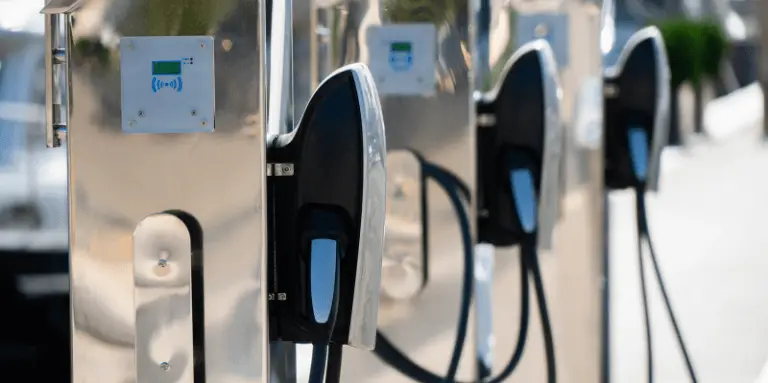
Since 2021, car taxation has been constantly evolving, and always in the same direction: to make combustion and plug-in hybrid vehicles less competitive with electric vehicles.
The main regulatory changes :
- Gradual end to exemptions for plug-in hybrids consuming more than 50g CO₂/km: these models, long regarded as a 'green' alternative, are now treated almost like conventional combustion engines.
- Retention of a list price calculation for petrol and diesel models: a system that automatically increases the benefit in kind and therefore the tax cost for both the company and the employee.
- Higher taxes on non-zero-emission heavy goods vehicles An additional cost that particularly affects internal combustion SUVs and certain hybrid models.
The impact on businesses
These measures have resulted in a significant increase in the total cost of ownership (TCO) of combustion and plug-in hybrid vehicles.
- For an employeethe taxable benefit in kind becomes more onerous: a thermal vehicle can represent €500 to €700 more taxable per year than an eco-scored electric equivalent.
- For the company, the tax bill rises both through social security contributions on NEA and through specific taxes.
- For fleet managers, This automatically reduces the attractiveness of these models in calls for tender and fleet renewals.
In plain English The government is deliberately undermining the tax competitiveness of combustion solutions in order to make the 100 % electric option unavoidable.
What role does taxation play in the choice of an electric company vehicle?

Taxation acts as a strategic lever to guide companies' mobility policies. The tax allowance of 70 % for eco-certified electric vehicles fundamentally alters the calculation of the total cost of ownership (TCO) and positions theas the most cost-effective solution on the market.
1) Direct impact on TCO
Total cost of ownership (TCO) is the benchmark for fleet managers. Taxation directly reduces :
- Social security charges on the NEA,
- The cost to the beneficiary employee,
- Recurring taxes (TVS, fuel, etc.)
2) Attractiveness for employees
An employee who benefits from an eco-scored electric vehicle will see his benefit in kind reduced, which improves his net purchasing power.
Example:
- Benefit in kind: €600/month taxable.
- Benefit in kind from eco-scored electricity: €200/month taxable.
For the company, it's a strong argument for retaining talent.
3) Carbon footprint and CSR
Companies are increasingly being assessed on their carbon footprint. Choosing an electrified fleet contributes directly to CSR objectives and improves brand image.
So, over and above a simple numerical advantage, taxation gives a clear direction: choosing electric means optimising costs while contributing to sustainability.
Summary table of tax impacts on electric and hybrid company vehicles
| Type of vehicle | Benefits in kind | Applicable tax allowance | TVS exemption | Horizon of application |
|---|---|---|---|---|
| Thermal (diesel/petrol) | Recalculated on the basis of catalogue prices | No | No | Permanent |
| Plug-in hybrid > 50g CO₂/km | 100% calculation based on | No | No | Permanent |
| Plug-in hybrid < 50g CO₂/km | Partial reduced benefit | Allowance of 30-50% | No | Until 2024 |
| Standard electric | Significant reduced benefit | 50% | Yes | Until 2027 |
| Eco-friendly electrics | Reduced benefit in kind | 70% | Yes | Until 2027 |
Conclusion: A strategic opportunity
The increased tax allowance of 70 % for eco-certified electric vehicles is a decisive measure that is transforming the competitiveness of electric vehicles in company fleets.
The 2025 tax reform marks a turning point:
- Thermal vehicles will be heavily penalised,
- Plug-in hybrids are losing their appeal,
- Eco-certified electric vehicles are now the most advantageous solution both fiscally and economically.
For companies, it's much more than a bonus: it's a sustainable competitive advantage.
At Beev, we're already helping hundreds of companies make the switch. Thanks to our leasing solutions, fleet audit and electric vehicle comparator, we can help you choose the eco-focused models best suited to your needs.

















